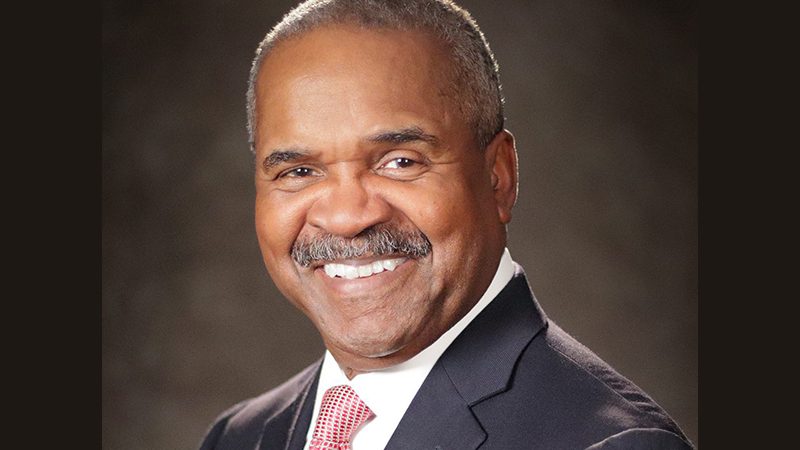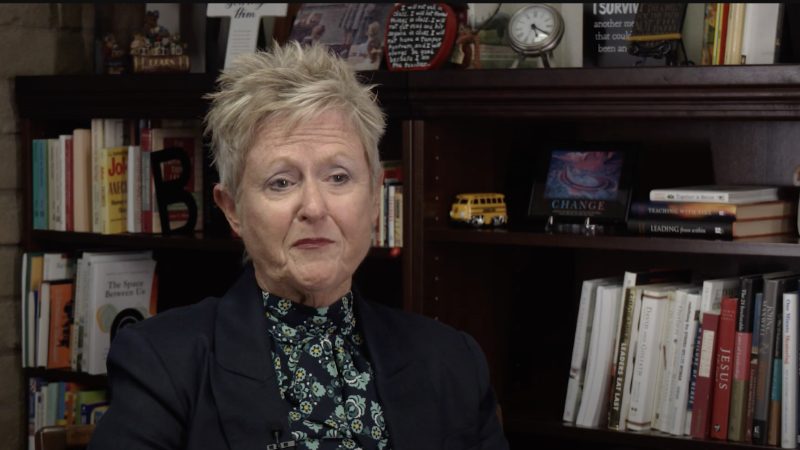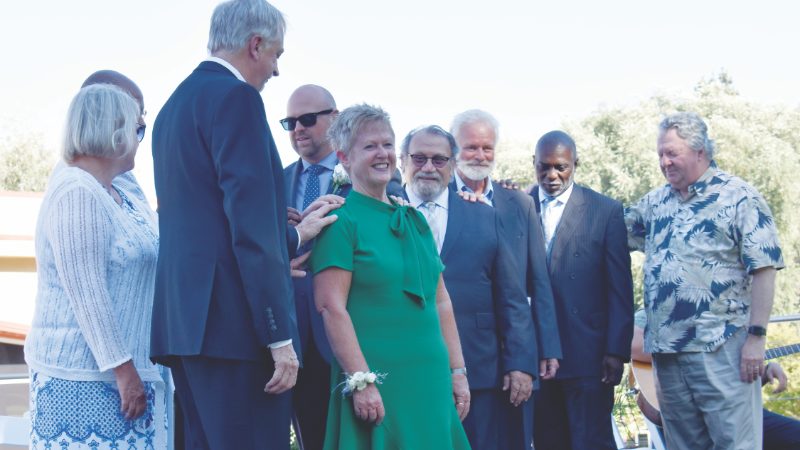
A team of 11 Adventist Health volunteers spent six days in June on a Global Mission trip to the Federated States of Micronesia (FSM) conducting childhood screening for rheumatic heart disease (RHD). The team screened 765 children with a 12.7% positive rate for RHD.
RHD is caused by rheumatic fever, an autoimmune inflammatory reaction to group A streptococcal infection (strep throat), which can lead to inflammation and scarring of the heart valves. More than 90% of cases identified during the trip to the FSM will be treated with prophylactic antibiotics to keep in check further strep infection.
“We also found some very advanced RHD in children who will need surgery on their heart valves immediately,” said John Schroer, Adventist Health Global Mission system lead. “We often don’t think about rheumatic fever and RHD because in the U.S. we just treat strep when it comes up, but other locations in the world don’t always have this opportunity.”
The Adventist Health team partnered with Dr. Payne Perman, a local physician who started the screening program more than 10 years ago. His goal is to screen every child in the FSM every year. After screenings take place, Dr. Perman partners with local public health officials to begin treatment and ongoing care.
“I’ve never seen more tears shed on a mission trip than this one,” said Schroer. “Our team experienced so much joy and purpose from being able to change the direction of these kid’s lives. One of our providers said this trip brought them back to the reason they wanted to be in healthcare in the first place.”
The FSM is a federation of four states—Yap, Chuuk, Pohnpei, and Kosrae—comprised of 607 islands. After screening 25% of the children on three islands in Chuuk, the Adventist Health team found 97 cases of RHD. There are 29 more islands in Chuuk alone yet to hold screenings. More than 52% of the population on each of the 607 islands is under the age of 18 and in need of screening. The majority of screenings, roughly 98%, will identify infection in time for effective treatment without surgery.
“We didn’t see enough people,” Schroer said. “We need echo-techs, cardiologists, and nurses for our next trip. Taking a team of eight to 10 providers each month would change the direction of countless lives in Micronesia.”
Schroer said the physical hardship of traveling to screening locations and conducting the screenings is intense in terms of logistics, but trip participants consistently report the physical hardships don’t compare to the joy of the work.
You can support this work in the FSM. Contact John Schroer at schroejh@ah.org to learn more.
____________________
By Kim Strobel
Voluntarios de Adventist Health en viaje misionero a Micronesia

Un equipo de 11 voluntarios de Adventist Health pasó seis días en junio en un viaje misionero a los Estados Federados de Micronesia (FSM) realizando pruebas de detección de enfermedades cardíacas reumáticas (RHD) en la infancia. El equipo examinó a 765 niños con una tasa de positividad del 12.7 por ciento para RHD.
La RHD es causada por fiebre reumática, una reacción inflamatoria autoinmune a la infección por estreptococos del grupo A (faringitis estreptocócica), que puede provocar inflamación y cicatrización de las válvulas cardíacas. Más del 90% de los casos identificados durante el viaje al FSM se trataron con antibióticos profilácticos para mantener a raya la infección por estreptococos.
«También encontramos algo de RHD muy avanzada en niños que necesitarán cirugía en sus válvulas cardíacas de inmediato», dijo John Schroer, líder del sistema de la Misión Global de Adventist Health. «A menudo no pensamos en la fiebre reumática y la RHD porque en los EE. UU. solo tratamos el estreptococo cuando aparece, pero otros lugares del mundo no siempre tienen esta oportunidad».
El equipo de Adventist Health se asoció con el Dr. Payne Perman, un médico local que comenzó el programa de detección hace más de 10 años. Su objetivo es examinar a todos los niños en FSM cada año. Después de que se realizan las pruebas de detección, el Dr. Perman se asocia con los funcionarios de salud pública para comenzar el tratamiento y la atención continua.
«Nunca he visto más lágrimas derramadas en un viaje misionero que este», dijo Schroer. «Nuestro equipo experimentó mucha alegría y propósito al poder cambiar la dirección en la vida de estos niños. Uno de nuestros proveedores dijo que ese viaje los devolvió a la razón por la que querían estar en el cuidado de la salud en primer lugar».
FSM es una federación de cuatro estados: Yap, Chuuk, Pohnpei y Kosrae, compuesta por 607 islas. Después de examinar al 25% de los niños en tres islas de Chuuk, el equipo de Adventist Health encontró 97 casos de RHD. Solo en Chuuk hay 29 islas más que aún no se han realizado proyecciones. Más del 52% de la población de cada una de las 607 islas es menor de 18 años y necesita hacerse pruebas de detección. La mayoría de las pruebas de detección, aproximadamente el 98%, identificarán la infección a tiempo para un tratamiento eficaz sin cirugía.
«No vimos a suficientes personas», dijo Schroer. «Necesitamos ecotécnicos, cardiólogos y enfermeras para nuestro próximo viaje. Tener un equipo de ocho a 10 proveedores cada mes cambiaría la dirección de innumerables vidas en Micronesia».
Schroer dijo que las dificultades físicas de viajar a los lugares de detección y realizar las evaluaciones son intensas en términos de logística, pero los participantes del viaje informan constantemente que las dificultades físicas no se comparan con la alegría del trabajo.
____________________
Por Kim Strobel






